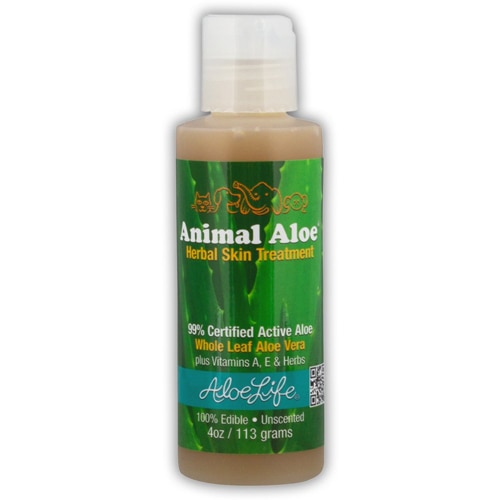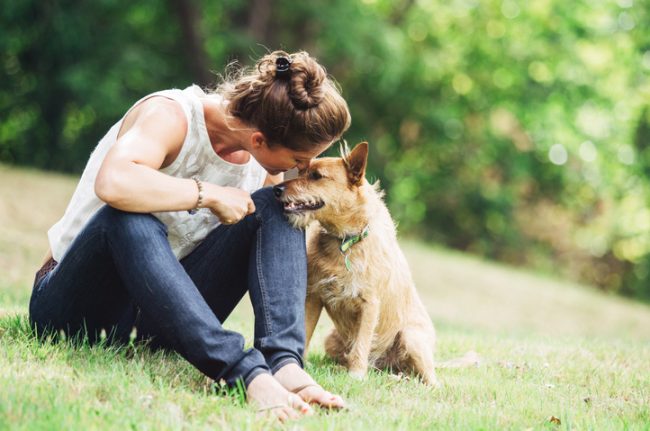Summer is a favorite time of year for most of us. The warm weather is an invitation to get out and explore, whether it's in the city, hiking mountain trails or spending a day at the beach. Of course, we love to include our pets in our adventures whenever possible. But hot temperatures can pose health risks for our four-legged friends, even in their own backyards.
Here are some tips from animal care experts on how to maximize summer play, while playing it safe with our pets’ health and well-being.
Travel safety
One of the most important summer safety tips for pets is to never leave them in a car. Temperatures inside a vehicle can rise to dangerous and deadly levels within just a few minutes. Even if you think you’ll just be gone for a couple of minutes to grab one item, it’s best to leave pets at home when running errands in the summer. You can make it up to them with a quick trip around the block when you get back!
Physical therapist and pet expert Sally Morgan suggests packing frozen water bottles when traveling with pets. Even with the car A/C cranking, it can be uncomfortable for your furry companions. Not only can pets lick the condensation on the bottles as the ice melts, but dogs, cats and rabbits often appreciate lying down on frozen water bottles as a way to cool off. Be sure to carry fresh water and clean bowls, and allow your pets to drink regularly during the trip.
Pad protection
While we think of dogs’ foot pads as being tough (after all, they are always barefoot), they can get burned on hot pavement or sand. Julie Hansen, DVM, cVMA, says that any surface that you can’t keep your hand on for five seconds is too hot for pets to walk on. If your pet will be on hot sand or pavement for more than a minute, protect their pads with dog booties. Many are waterproof and will allow your pup to play on any surface without burning their pads.
It’s important to check their feet after walks and outdoor play. Look for cracking and blisters on their paw pads and seek medical attention if you see any. Burned pads can be very painful and get infected easily. To soothe minor irritation, try applying pet aloe gel.
It’s not just the heat, it's also humidity
Dr. Hansen notes that humidity plays a large role in summer safety. Dogs don’t sweat; they cool themselves by panting. This process of evaporation is more difficult as the humidity rises.
“This is even more a problem for brachycephalic breeds -- these are dogs with smooshed-in faces: pugs, bulldogs, Boston terriers and the like,” she says.
Make sure pets have access to plenty of shade and keep walks short and either early morning or late evening to avoid the hottest, most humid parts of the day.
Hydration is key
Cats, dogs, and rabbits prefer clean water and clean bowls. Wash water bowls daily, and refill with clean water twice a day. It’s also a good idea to keep extra water bowls around during the summer months. Pets that usually go inside for water will need access to clean, cool water even when they are outside for small amounts of time.
Frozen treats provide another way to help pets stay cool and hydrated. Professional dog walker Katie Nitti offers this easy frozen dog treat recipe: mix plain Greek yogurt, peanut butter, blueberries and water in a blender. Blend until smooth, then freeze in ice cube trays. She says it helps cool dogs off, provides extra hydration and keeps them happy and entertained. You can also offer pets wet food to help add water to their diets during hot months.
Horses have special hydration needs. Sally Morgan warns against hoof drying, especially in arid climates. She suggests overfilling water troughs to maintain an area of damp mud where horses can keep their hooves cool and moist.
Additional outdoor safety
Veterinarian Dr. Judy Morgan says that pets can also get sunburned and skin cancer—especially on their ears. Minimizing sun exposure helps guard against heat stroke and sunburns.
She also points out that summer pet safety isn’t just about heat and hydration. It’s important to keep a close eye on pets when they are enjoying being outdoors with you. Hot grills and hot drippings from grills can burn pets. Dogs should also be watched closely near bodies of water and swimming pools, as even strong swimmer can get stuck and need rescuing. If you know they’ll be swimming, or near water and aren’t strong swimmers, put a life jacket on them (especially important in large bodies of water).
Optimize health to minimize risks
One of the top things you can do to keep your pets safe this summer is to ensure they are in the best possible health. Good grooming helps reduce fur layers that add to overheating. Consider giving your pet the occasional wipe-down or bath to help them cool off on hot days (check out the Sham-Pup Pet Soap Bar).
Lastly, fleas and ticks are more than a nuisance—they can make your pet suffer, especially when the heat and humidity are high. Read Natural Ways to Protect Your Pup From Fleas & Ticks for great ways to reduce pest problems for pets.




